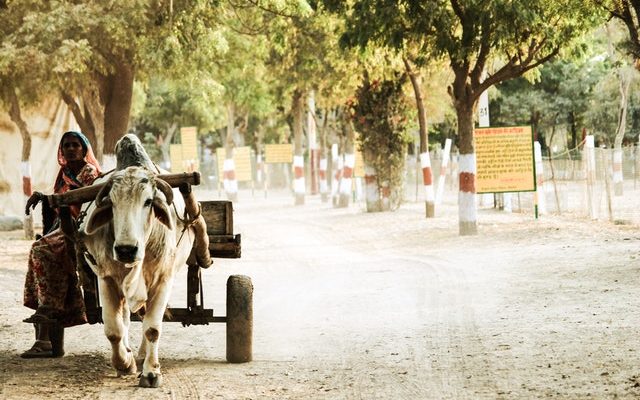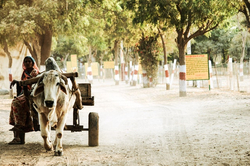CDKN Guide Offers Practical Advice on Communicating Climate Change

This week, CDKN launches Communicating climate change: A practitioner’s guide, the revised 2019 edition.
The guide is full of tips for communicating climate change effectively, drawn from CDKN’s experience in South Asia and Southeast Asia, sub-Saharan Africa, and Latin America and the Caribbean. It is by practitioners and for practitioners.
If you have ever tried to explain to colleagues in your organisation, policy-makers, or the broader public how the climate is changing, how it affects them, and what they can do about it, then this guide is for you. Whether you are in government, business, civil society or academia, when we refer to ‘climate communicators’, we mean you!
The guide is intended to fill a gap in sharing practitioners’ experiences about climate communications in the Global South. A large amount has been written and debated on how best to communicate climate issues in industrialised countries with a view to both influencing policy debates and changing broader public awareness and behaviour. However, this considerable literature is overwhelmingly ‘Northern’ – focusing principally on convincing a sceptical or apathetic public in North America, Europe or Australasia.
The guide is written by CDKN’s Knowledge Management and Communications staff, who have been working since 2010 to raise awareness of:
the impacts of climate change on poverty and development;
the potential for building resilience to climate change; and
the opportunities of embracing a low-emission economy.
The team’s experience spans dozens of low- and middle-income countries.
The climate communicators with whom CDKN has worked in developing countries, and their ultimate audiences, don’t need to be convinced that climate change is happening. They see the evidence before their eyes: in searing heatwaves and increasing numbers of heat-related illnesses and death; in failing and flooded food crops, and inundated coastal zones.
Rather, people want to ‘make sense’ of what they are seeing: to understand their lived experience in scientific context, to know what the future climate might hold, and decide what they should do about it.
Building on readers’ feedback
The guide was initially launched in late 2018 (at COP24 in Katowice, Poland) with a call for stories and feedback from readers. As a result of wide consultations, the guide has been fully reformatted and updated for 2019. It now includes many new case studies – including experiences in using performance art and high school competitions to engage new audiences around climate change solutions. The CDKN team is especially pleased to have teamed up with researchers and communications officers from the Collaborative Adaptation Research Initiative in Africa and Asia (CARIAA) and Building Resilience and Adaptation to Climate Extremes and Disasters (BRACED) to capture some of their experiences.
Download the guide and please share widely: Communicating climate change – A practitioner’s guide.
Visit https://www.cdkn.org/communicating




